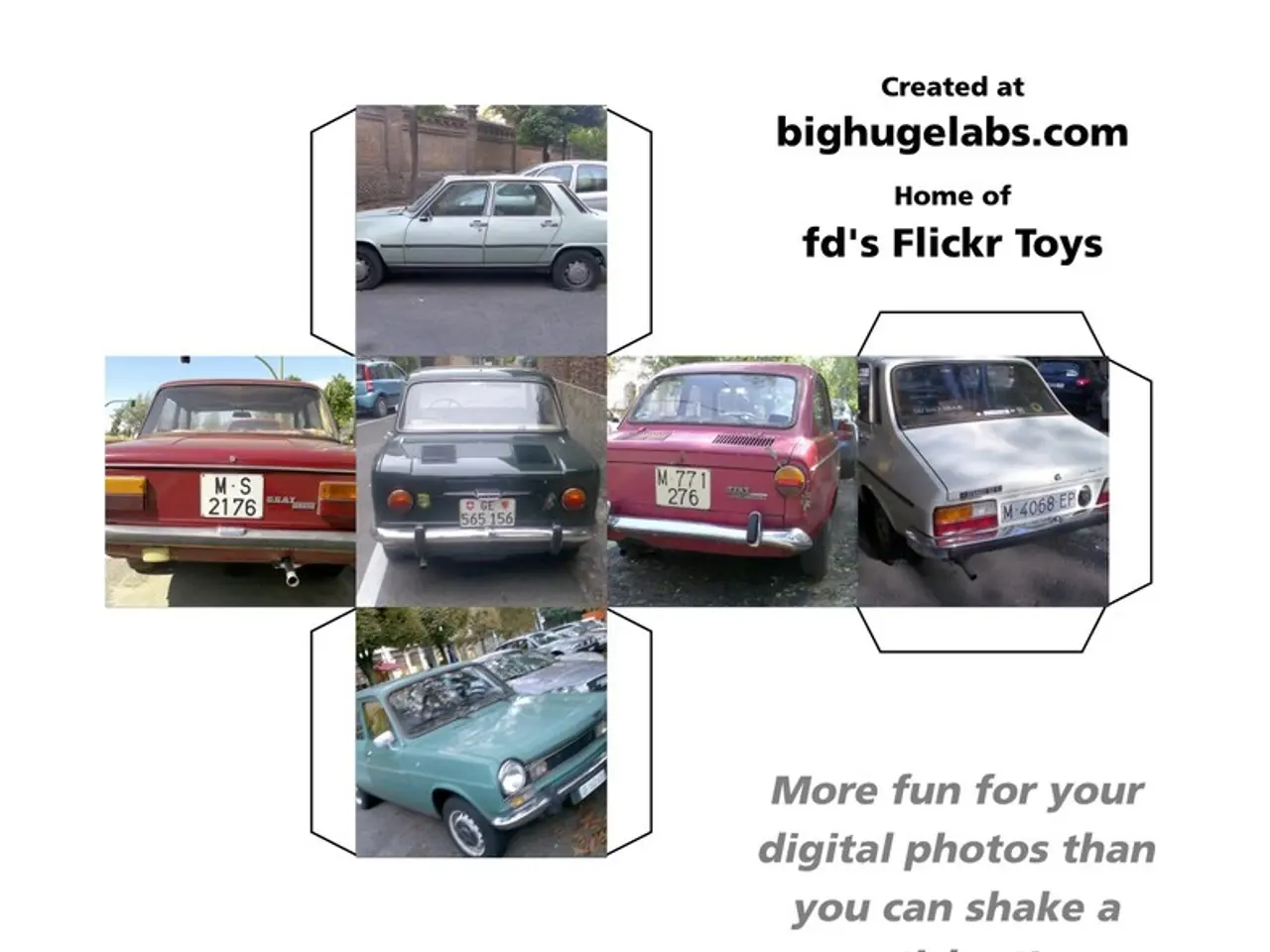Expanded Productions and Large-scale Manufacturing – Utilizing Scale for Enhanced Mobility Solutions
Toyota Leads the Way in Advancing Commercial Logistics with CASE Technologies
Toyota is at the forefront of revolutionizing the commercial logistics industry, collaborating with partners in the Connected, Autonomous, Shared, Electric (CASE) sector to drive growth and innovation.
The automotive giant's efforts focus on developing carbon-neutral, connected, and autonomous commercial vehicles, aiming to improve goods movement efficiency and reduce emissions. Toyota has formed strategic partnerships with Daimler Truck, Mitsubishi Fuso, Hino Motors, and others, to accelerate the development of hydrogen and other CASE technologies for commercial vehicles.
One of the key advancements is the development of the Efficient Transport Operation Support System (E-TOSS), a collaborative project with retailer AEON. E-TOSS combines Toyota's connected technology with AEON's logistics expertise, utilizing real-time information processing capabilities, big data, and truck driving data to optimize consolidation and identify efficient transport routes.
In the realm of hydrogen fuel cell vehicles, Toyota is developing FCEV trucks and BEV commercial minivans, which boast impressive ranges of 200 km and 260 km respectively, with carrying capacities equal to their gasoline-powered counterparts. Heavy-duty trucks, based on the Hino Profia and equipped with two sets of FC stacks from the Mirai, are currently undergoing on-road trials with several companies. These vehicles are equipped with hydrogen tanks that provide a range of over 600 km from just 50 kg of gaseous hydrogen.
Toyota is also focusing on vehicle-to-vehicle communication systems to coordinate multi-vehicle fleets, optimizing traffic flow, reducing energy consumption, and improving safety. This connected fleet technology enables logistics companies to enhance route efficiency, minimize idle times, and lower operational costs.
Moreover, Toyota's strategic alliances extend to AI integration and digital innovation that optimize supply chain management and carbon emission reduction in logistics. The company's partnerships promote workforce development and AI applications in manufacturing and supply chains, delivering safer and more efficient logistics operations.
Additive manufacturing technologies from collaborations, such as with Stratasys, accelerate production innovation, enabling Toyota to quickly produce customized tools and parts. This manufacturing agility supports logistics operations by reducing lead times and enhancing product and service adaptation to changing demands.
The commercial logistics sector, which accounts for 40% of total mileage and half of overall CO2 emissions, despite making up only 20% of vehicles on the road, presents a significant opportunity for Toyota to make a positive impact. The company has received offers for 100,000 vehicles in 2030, most of which are commercial vehicles.
To address the challenges in the logistics industry, such as driver shortages, transport efficiency, and carbon neutrality, Toyota launched the Collaborative Testing of Connected and Automated Driving Technologies (CJPT) in 2021. CJPT aims to provide solutions for these issues, with a focus on improving road gradient information to make driving more comfortable, safer, and more fuel- or energy-efficient.
Toyota's Executive Vice President, Hiroki Nakajima, emphasized the importance of collaborating with partners in the commercial sector to advance CASE technologies at a recent press conference. The future of commercial transportation, particularly in Southeast Asia, looks promising with Toyota at the helm.
In summary, Toyota's collaborative approach in CASE technology development is fostering growth in the logistics industry by advancing carbon-neutral, connected, autonomous commercial vehicles, developing communication-enabled multi-vehicle coordination systems, integrating AI and digital tools for smarter supply chain and workforce management, utilizing additive manufacturing to improve production agility for logistic support tools and parts, and addressing the challenges in the logistics industry through initiatives like CJPT. These efforts collectively enhance sustainability, operational efficiency, and innovative product/service offerings in logistics.
In the context of Toyota's advancements in commercial logistics, the company leverages data-and-cloud-computing and technology to optimize consolidation and identify efficient transport routes with partners (AEON) through systems like E-TOSS. The automotive giant is also developing hydrogen fuel cell vehicles, such as FCEV trucks and BEV commercial minivans, which not only provide impressive ranges for commercial applications but also form part of their strategic alliances for AI integration and digital innovation in supply chain management and carbon emission reduction.




